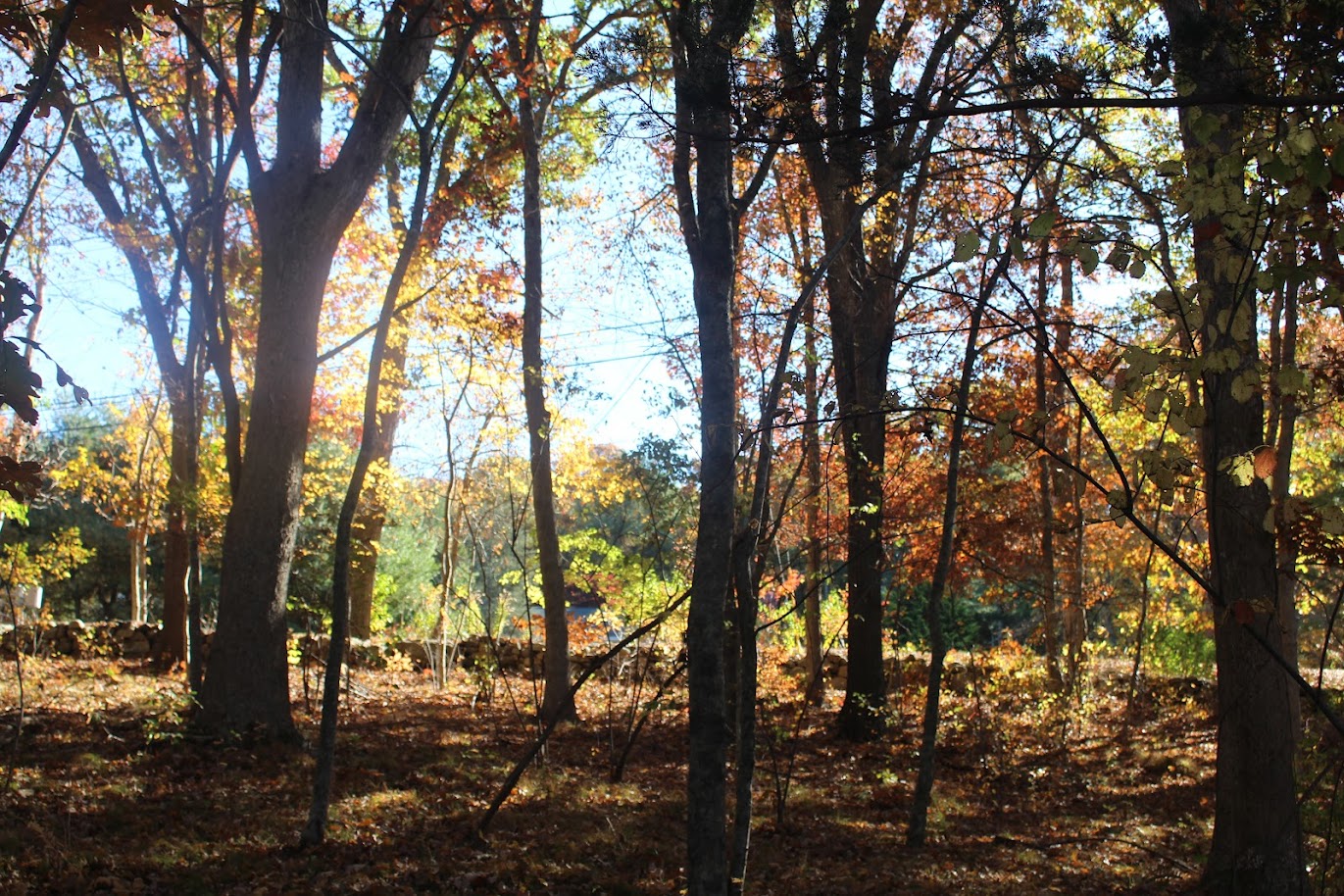“We aren’t against development; we’re for smart growth”
By Colleen Cronin / ecoRI News staff
 |
| A wooded section of the Barlow Nature Preserve. (Colleen Cronin/ecoRI News) |
On the path between the forest and the farms at Barlow Nature Preserve, sparrows flitting past blended with the falling leaves floating to the ground.
The neat rows of vegetable beds on one side of the path contrasted with the twisted trunks of fallen trees on the other.
The piece of property, both serene and functional, is a
great example of how downtown development and land preservation can complement
each other, Westerly
Land Trust executive director Jennifer Fusco said.
The land trust moved its headquarters from the downtown
Industrial Trust Building to the farmhouse on the property in 2020.
As a part of its urban renewal strategy, the trust had rehabbed the downtown building, which is now occupied by a local film company.
“We aren’t against development; we’re for smart growth,” Fusco said.
“If we have a really vibrant downtown,” added Erika Lebling,
the trust’s donor relations manager, “it will take development pressure off.”
The work of balancing urban development with rural
preservation started in the early 2000s for the land trust, which has been
around since 1987.
At the outset, “it was a lot of people sitting around the
kitchen table,” said Fusco, wondering how to lower development pressure in
town.
The trust really ramped up when a developer tried to turn
Avondale Farm into a large housing development.
“That loss would have been a turning point for Westerly,”
Fusco said.
The campaign to prevent the development of the farm included
a lot of door knocking and fundraising. But after about 10 years, the land
trust won the fight, and Avondale became its first preserve.
Today, the trust has about 1,800 acres of land preserved,
with Barlow Preserve making up about 80 of those acres.
The land trust had eyed the farm for years before its
previous owner, Eleanor Barlow, decided to leave the land to the trust in 2018.
“We weren’t sure what we’re going to do with the place yet,”
Fusco said, although they knew they wanted to keep using some of the land for
agriculture.
They decided to renovate the farmhouse, which is now their
headquarters, and offer low-cost, long-term leases to local agriculturalists.
“It wasn’t going to be conventional farming,” Fusco said,
with just 5 acres of the land suitable for farming.
Current tenants Echo Rock Flowers and Frontier Farm use
regenerative farming methods. Neither farm tills the land or uses chemical
fertilizers.
During the pandemic, when being outside was the safest place
to be, the property also became a center for learning.
“We honed our education program to fill those gaps” that
COVID created, Lebling said. The trust is currently fundraising to continue its
programing, which outlasted the deepest throes of the pandemic, even as
pandemic funding has come to an end.
The trust has a group of volunteers that comes weekly to
drink coffee and complete projects, and “the loop” around the farmland and
other paths on the property are open to the public.
“It’s been a nice little ecosystem here,” Fusco said.